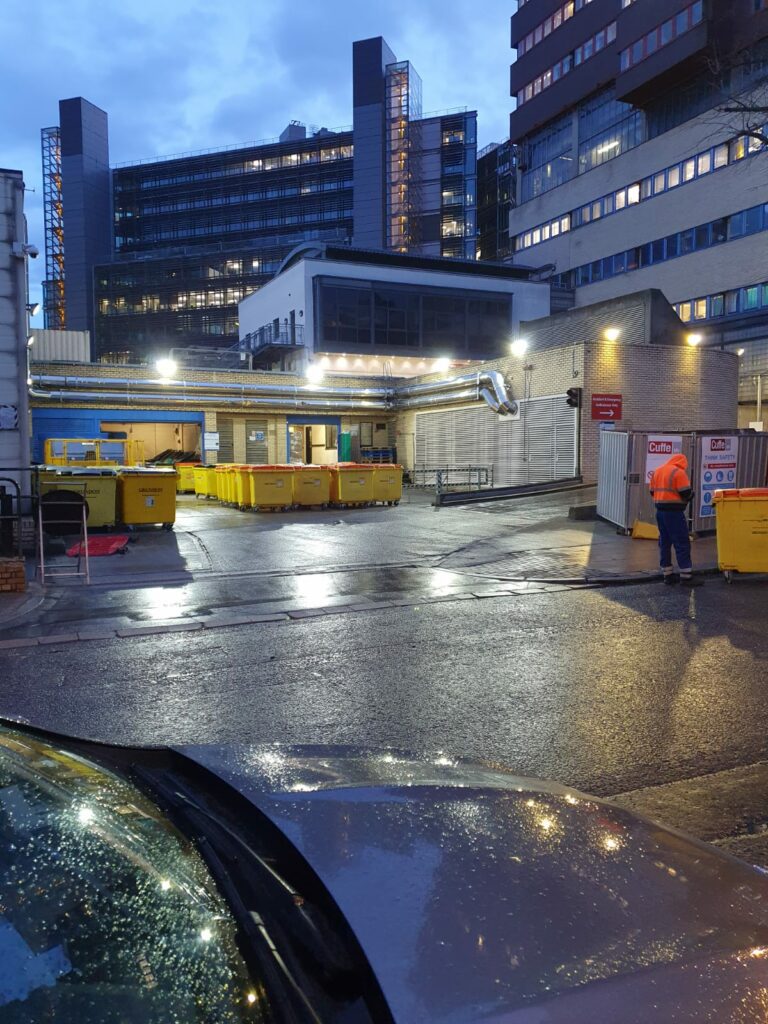In September 2019, the NHS made an admirable pledge, which promised to cut down in a phased manner the use of single-use plastics and minimize its carbon footprint. The initiative would progress like this:
- By April 2020, no longer purchase single-use plastic straws and stirrers in line with the government consultation
- By April 2021, no longer purchase single-use plastic cutlery, plates or single-use cups made of expanded polystyrene or oxo-degradable plastics
- After April 2021, go beyond these commitments in reducing single-use plastic food containers and other plastic cups for beverages – including covers and lids.
This was before the pandemic. Although, the NHS has been able to reach its first milestone, the pledge itself has been dealt a cruel blow by the pandemic. A new mountain of plastic waste has appeared in the form of PPE and masks that hospital staff need to do their job safely each day.
The Type II face masks (EN14683) or Type IIR, which is the medical-grade mask used by frontline hospital staff, is not completely bio-degradable, being made mostly of plastic. The British government alone, through the course of this pandemic, sent out a billion of these IIR masks. Further, the sheer scale of producing and importing them leaves behind an enormous carbon footprint.
Consider just the case of just Imperial Hospital, which Eleanor Hospital Logistics serves.
The frequency waste pickups per month have soared in the last months by a full 10 trucks, from 30 to 40. This is a staggering 10-13 tonnes more waste per month/per site! – and predictably, a lot of it is clinical waste. If this figure is multiplied across the country, the numbers become obscenely large.
DOING OUR PART TO HELP
The NHS has been working hard to educate staff on efficient use of PPE and ways to minimise waste and spending. At Eleanor Hospital Logistics too, the mandatory PPE training module includes actionable information on how to reduce waste. Following the NHS guidelines, our staff try to keep their mask on for as long as possible, without touching it and compromising its integrity. They also try to arrange their daily routines in such a way that they can remain in one set of PPE without interruption, and thereby cut down usage. Small as they seem, we still believe in doing our part. Being a “Carbon Conscious” organization and a proud NHS partner, we will help the hospitals we serve remain loyal to the NHS Single-Use Plastics Pledge.

